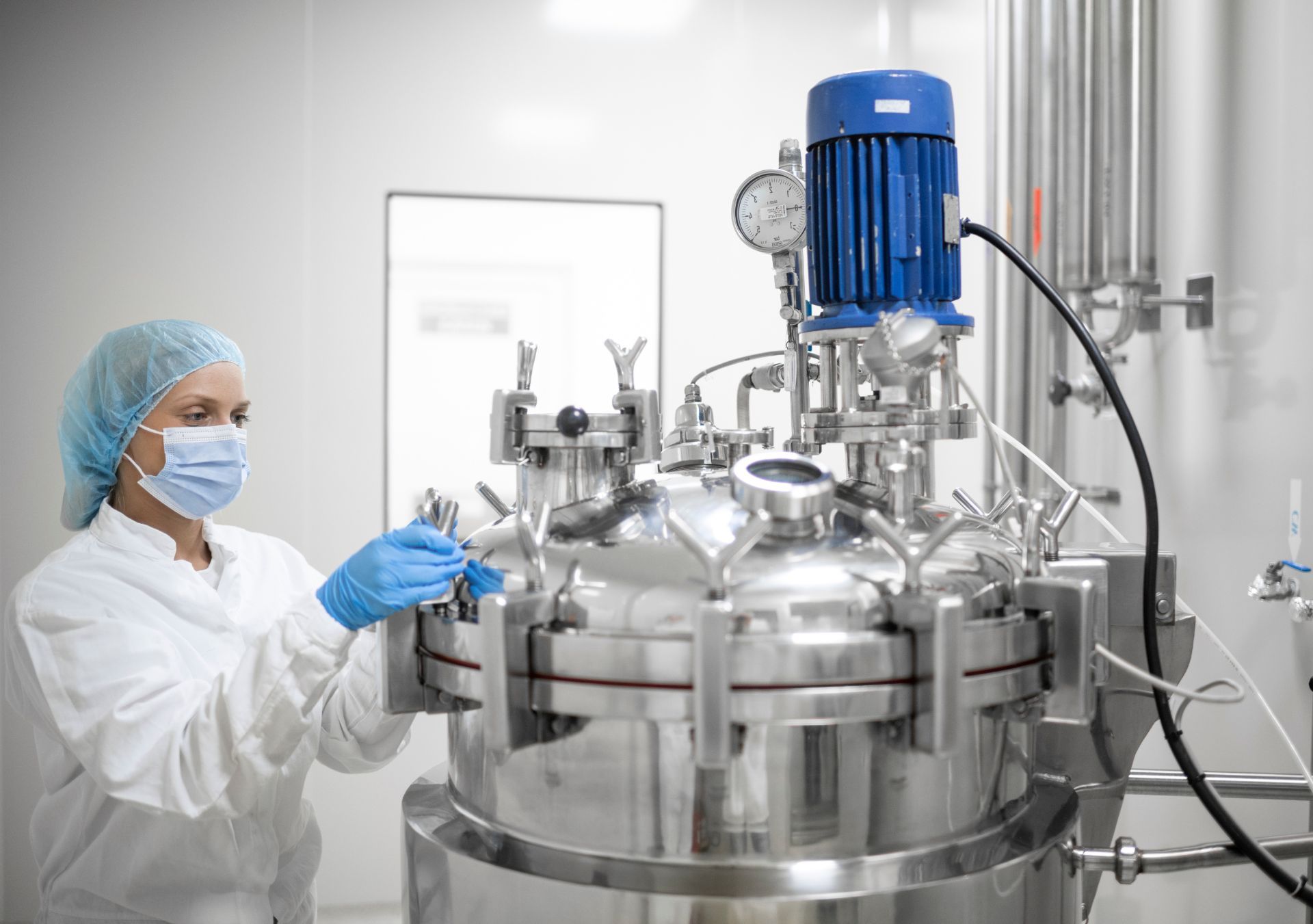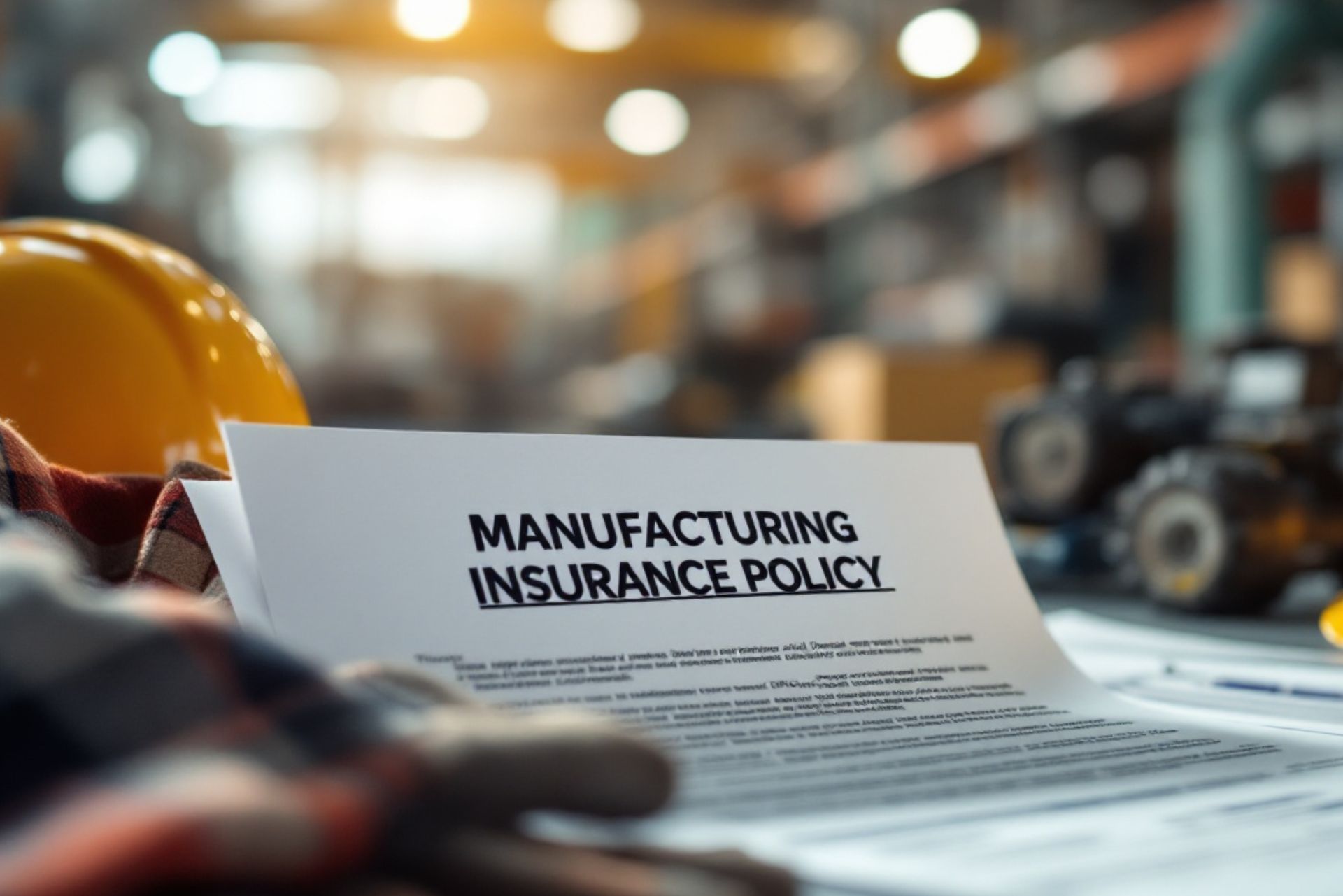
Most Common Business Policies
Index
Contact Us
New York is home to a vast and diverse manufacturing sector, housing everything from textiles to electronics. Navigating the landscape of insurance specific to manufacturers is crucial for business owners to protect their investments. This article will cover essential aspects of manufacturer insurance, providing insights and guidance to help you make informed decisions.
Understanding the Basics of Manufacturer Insurance
Manufacturer insurance is designed specifically for businesses in the manufacturing sector, protecting them against a variety of risks associated with production processes, equipment, and employee safety. Understanding its fundamental principles is the first step toward securing proper coverage.
Definition of Manufacturer Insurance
At its core, manufacturer insurance is a type of commercial insurance that helps protect manufacturing businesses from potential liabilities, property damages, and operational risks. This may include coverage for equipment breakdown, product defects, liability claims, and workplace accidents.
Importance of Manufacturer Insurance
The importance of manufacturer insurance cannot be overstated. Manufacturing companies face unique challenges: equipment can fail, products may be defective, and employees could be injured on the job. Adequate coverage ensures that a business can continue operating even in the face of unexpected setbacks.
Without insurance, a single mishap could lead to devastating financial losses, threatening the viability of the entire operation. Having comprehensive manufacturer insurance helps safeguard a company's assets and provides peace of mind. In addition to protecting against financial loss, manufacturer insurance can enhance a company's reputation. Clients and partners are more likely to engage with a business that demonstrates responsibility and preparedness through appropriate insurance coverage. This can lead to increased trust and potentially more business opportunities.
Moreover, many manufacturers are required to carry certain types of insurance to comply with industry regulations or contractual obligations. Failure to maintain adequate coverage can result in penalties, loss of contracts, or even legal action. By investing in manufacturer insurance, businesses not only protect themselves but also position themselves as reliable players in the marketplace, ready to meet the demands of clients and regulatory bodies alike. This proactive approach to risk management can ultimately lead to greater stability and growth in the competitive manufacturing landscape.

Key Features of New York Manufacturer Insurance
New York manufacturer insurance encompasses various features and provisions tailored to meet the needs of the manufacturing sector. Understanding these features helps businesses identify the best policy for their operations. The manufacturing industry in New York is diverse, ranging from textiles to electronics, and each segment has unique risks that necessitate specialized coverage. As such, manufacturers must consider their specific needs when selecting an insurance policy to ensure comprehensive protection against potential liabilities.
Coverage Options
Coverage options in manufacturer insurance can be extensive. Standard policies often include:
- General Liability Insurance
- Property Insurance
- Product Liability Insurance
- Workers' Compensation Insurance
- Business Interruption Insurance
These coverage types ensure that a manufacturer is protected from diverse risks, ranging from workplace injuries to material losses due to unforeseen events. Additionally, manufacturers may also consider endorsements or riders that can enhance their policies, such as equipment breakdown coverage, which specifically protects against the loss of income due to machinery failure. Furthermore, pollution liability insurance can be particularly relevant for manufacturers dealing with hazardous materials, safeguarding against environmental damage claims that could arise from their operations.
Policy Limitations
While it’s essential to recognize the breadth of coverage, it’s equally necessary to understand the limitations. Common policy exclusions might include:
- Intentional Damage
- Wear and Tear
- Natural Disasters not Specified
Careful review of the policy documentation is crucial, as these limitations can drastically impact the support a business receives during a claim. Additionally, manufacturers should be aware of the potential for sub-limits on certain coverages, which can restrict the amount payable in the event of a loss. For instance, while a policy may cover general liability, it might only provide limited coverage for specific incidents like product recalls or cyber incidents, which are increasingly relevant in today's digital landscape. Engaging with an insurance broker who specializes in manufacturing can provide valuable insights into navigating these complexities, ensuring that businesses are well-informed and adequately protected against the myriad risks they face.
How to Choose the Right Manufacturer Insurance in New York
Choosing the right manufacturer insurance is pivotal for ensuring operational continuity. Here are key considerations to navigate this process effectively.
Assessing Your Business Risks
The first step in selecting insurance is conducting a thorough risk assessment of your manufacturing operations. Consider potential vulnerabilities such as:
- Equipment and machinery risks
- Employee safety protocols
- Supply chain reliability
- Customer and product liability
By understanding these risks, you can determine what coverage is essential for your operations. For instance, if your manufacturing process relies heavily on specialized machinery, you may want to consider equipment breakdown insurance, which can cover the costs associated with repairs or replacements due to mechanical failures. Additionally, evaluating employee safety protocols is crucial, as workplace injuries can lead to significant financial losses and legal liabilities. Implementing robust safety measures not only protects your workforce but can also lower your insurance premiums over time.
Comparing Insurance Providers
After assessing your risks, research various insurance providers. Key factors to compare include:
- Reputation and reviews
- Policy offerings and flexibility
- Customer service and support
- Cost of premiums
Taking the time to gather quotes from multiple insurers will help you find a provider that meets both your coverage needs and your budget. Furthermore, consider engaging with industry peers or trade associations for recommendations on reliable insurers. Their firsthand experiences can provide valuable insights into the claims process and the level of support offered by different companies. Additionally, look for insurers that specialize in manufacturing, as they will have a better understanding of the unique challenges faced by businesses in this sector. This specialized knowledge can lead to more tailored coverage options that address your specific needs.
Cost of Manufacturer Insurance in New York
The cost of insurance is a significant consideration for any manufacturing business. Various factors can influence how much you might pay for a policy.
Factors Influencing the Insurance Cost
Insurance premiums can vary based on several factors, including:
- The size of your business
- Your industry classification
- The location of your operations
- Your claim history
Understanding these variables can provide insights into why a specific quote may differ from others. For instance, larger manufacturers may face higher premiums due to the increased risk associated with more extensive operations and a larger workforce. Additionally, businesses located in urban areas may encounter higher rates due to the increased likelihood of theft or property damage compared to those in rural settings. Furthermore, the specific industry classification plays a crucial role; for example, businesses in industries with higher accident rates, such as heavy machinery manufacturing, may see elevated premiums compared to those in less hazardous sectors.
Ways to Lower Your Insurance Premiums
Lowering your insurance premiums is feasible through strategic practices, such as:
- Implementing safety protocols to reduce workplace injuries
- Choosing a higher deductible
- Bundling policies for discounts
- Working with insurance agents knowledgeable about the manufacturing sector
These strategies can help businesses manage costs while maintaining essential coverage. Additionally, investing in employee training programs can significantly reduce the likelihood of accidents, which not only enhances workplace safety but can also lead to lower premiums over time. Regularly reviewing and updating your insurance policies to reflect changes in your business operations is another effective strategy; as your business evolves, ensuring that your coverage aligns with your current needs can prevent overpaying for unnecessary coverage. Moreover, some insurers offer discounts for businesses that demonstrate a commitment to sustainability and environmentally friendly practices, which can be an added incentive for manufacturers looking to reduce costs while also contributing positively to the community.
Understanding how to navigate the claims process is crucial when an incident occurs. Being prepared can expedite the resolution and minimize disruptions to your business operations. The claims process can often feel overwhelming, especially in the wake of an unexpected event. However, familiarizing yourself with the steps involved can empower you to handle the situation with confidence and clarity.
When to File a Claim
A claim should be filed when an incident results in a covered loss. This can include anything from property damage to a third-party liability claim. Ensuring that the incident falls within the parameters of your coverage is essential before proceeding. It’s also important to note that some policies have specific time limits for filing claims, so being aware of these deadlines can prevent unnecessary complications down the line.
Steps in the Claims Process
Generally, the claims process involves the following steps:
- Notify your insurance provider promptly after an incident.
- Submit necessary documentation, including photographs and reports.
- Cooperate with adjusters during the investigation.
- Review and understand the compensation offer.
Proactive communication and thorough documentation can lead to a smoother claims experience. Additionally, keeping a detailed record of all interactions with your insurance company, including dates, times, and the names of representatives you speak with, can be invaluable. This not only helps in tracking the progress of your claim but also provides a clear reference should any disputes arise. Furthermore, understanding the common reasons for claim denials—such as insufficient evidence or policy exclusions—can help you prepare a stronger case and avoid potential pitfalls.

Legal Requirements and Regulations
In New York, manufacturers must adhere to specific legal standards that may influence insurance requirements. Understanding these can help ensure compliance while protecting your business. The legal landscape is complex, and staying informed about changes in regulations is crucial for manufacturers who want to avoid potential legal pitfalls and financial losses.
New York State Insurance Laws
New York has stringent regulations surrounding business insurance that manufacturers must follow. Compliance includes acquiring Workers' Compensation coverage for employees and, depending on the business, liability coverages. Additionally, manufacturers may be required to carry specific types of insurance, such as product liability insurance, which protects against claims of injury or damage caused by products sold or supplied by the business. This type of coverage is particularly important in industries where product safety is paramount, as it can safeguard against costly lawsuits and reputational damage.
Compliance with Industry Standards
In addition to state laws, manufacturers must adhere to industry standards set by organizations such as OSHA. Meeting these standards not only ensures workplace safety but can also impact insurance rates and coverage options. For instance, a facility that consistently meets OSHA regulations may qualify for lower premiums, as insurers often reward businesses that demonstrate a commitment to safety. Furthermore, compliance with industry standards can enhance a manufacturer's reputation, making it more appealing to potential clients and partners who prioritize safety and reliability in their supply chains.
Moreover, manufacturers should also be aware of environmental regulations that may apply to their operations. The New York State Department of Environmental Conservation (DEC) enforces laws aimed at protecting the environment, which can include regulations on waste management, emissions, and resource use. Non-compliance with these regulations can not only lead to hefty fines but may also affect a manufacturer's insurance coverage, as insurers may view non-compliance as a risk factor. Therefore, understanding and integrating environmental compliance into business practices is essential for manufacturers aiming to mitigate risks and enhance their operational sustainability.
Frequently Asked Questions about New York Manufacturer Insurance
As you explore manufacturer insurance, you may have some common questions that require clarification. Here are answers to frequently asked inquiries.
What Does Manufacturer Insurance Cover?
Manufacturer insurance covers a variety of risks, including product liability, property damage, and employee injuries. Specific coverage types can be tailored to fit the unique needs of individual manufacturing operations. For instance, product liability insurance protects against claims arising from defects in manufactured goods, which can lead to costly lawsuits and damage to your company's reputation. Additionally, property coverage safeguards your physical assets, such as machinery and inventory, from unforeseen events like fire, theft, or natural disasters, ensuring business continuity.
Is Manufacturer Insurance Mandatory in New York?
While not all types of manufacturer insurance are mandatory, certain coverages such as Workers' Compensation are legally required in New York. It's advisable to consult with an insurance professional to ensure compliance with all applicable laws and regulations. Furthermore, businesses may also consider obtaining general liability insurance, which, while not mandated, is crucial for protecting against third-party claims related to bodily injury or property damage that may occur on-site. Such proactive measures can not only help in managing risks but can also enhance your credibility with clients and partners.
Understanding the nuances of these insurance policies can be a daunting task, but it is an essential part of managing a successful manufacturing business. Engaging with an experienced insurance agent can provide valuable insights into the specific risks your business may face and help you navigate the various options available. This tailored approach ensures that you are adequately covered, allowing you to focus on production and innovation without the constant worry of potential liabilities.
